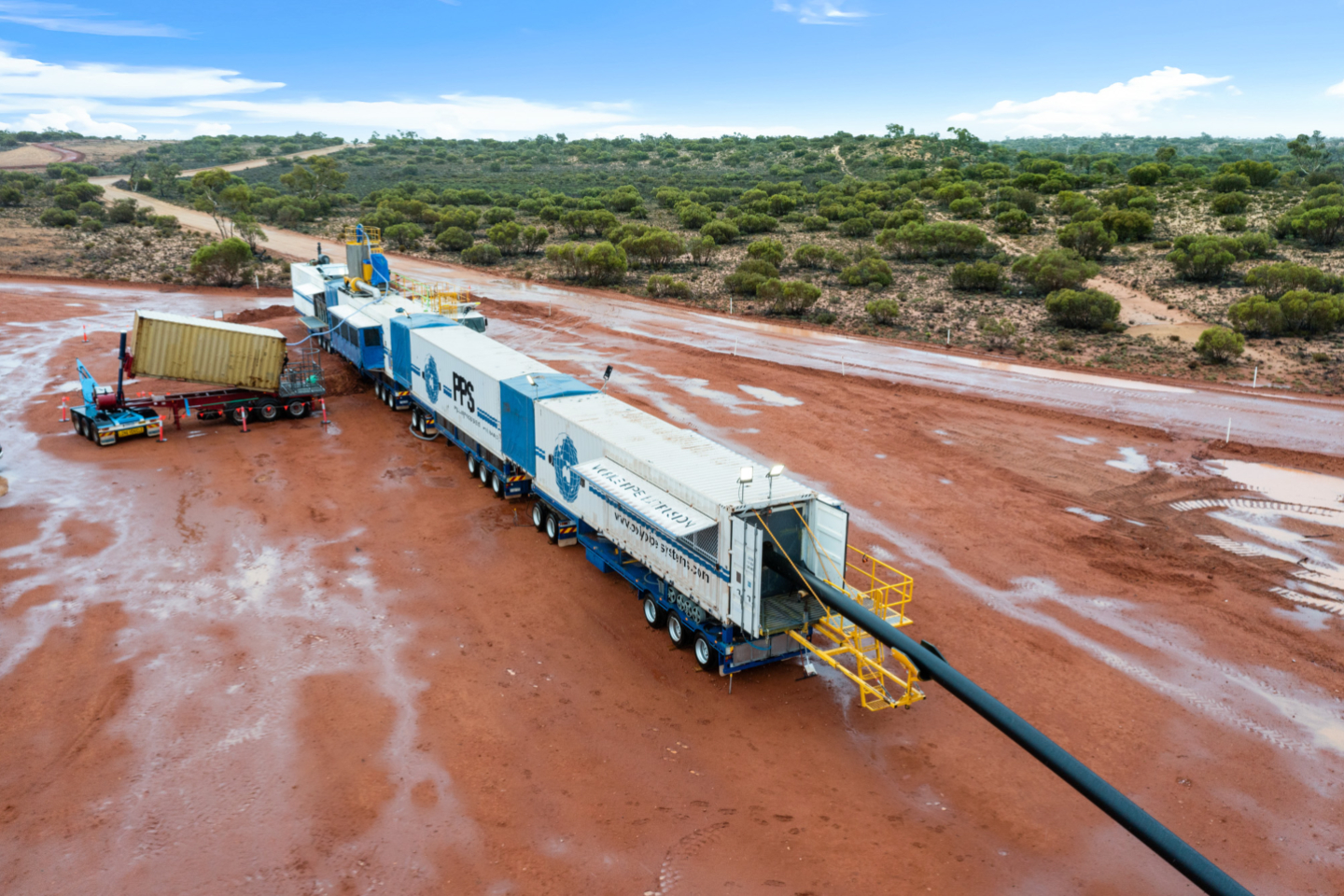Perth-based industrial piping disruptor Polyline Pipe Systems believes its innovative method of producing “HDPE” poly pipes on site can help resources companies ease the current scourge of runaway prices bedevilling their sector. Polyline says its MPX630 mobile pipe extruder can reduce the conventional process to just three steps: on-site manufacture, a single weld at the end of a continuous pipe length and trench or surface installation as required.


Emerging Perth-based industrial piping disruptor Polyline Pipe Systems believes its innovative method of producing “HDPE” poly piping for industrial clients at their job site can help resources companies ease the current scourge of runaway prices bedevilling their sector.
Polyline says its mobile pipe-manufacturing unit can be driven directly to site, reducing the conventional process to just three steps: on-site manufacture, a single weld at the end of a continuous pipe length and trench or surface installation as required.
With high input costs combining with labour shortages and continuing supply chain headaches, companies are finding it difficult to recover lost ground during the Covid-19 pandemic according to Polyline.
Late last week Regis Resources, which describes itself as the fourth-largest gold producer on the ASX, joined the chorus of complainants when detailing its latest half-yearly results. Regis management said “significant” and “industry-wide” inflationary pressures are one reason for the company’s $30 million net loss after tax in the second half of 2022.
Two days earlier, mining behemoth BHP released its own set of figures for the same period pointing to a 12 per cent cost blow-out creating a colossal $1 billion impact on its bottom line.
Polyline Managing Director, Ian Dorrington said; “BHP stated that fuel and labour costs are problematic and likely to remain so for some time to come.”
Polyline’s solution to cutting at least one significant cost borne by most resources companies is its MPX630 – a mobile pipe extruder capable of making high-density polyethylene, or “HDPE” pipes on site – as opposed to the traditional method of buying them from a wholesaler and then paying to have them transported to site.
Trucked to site on the back of a couple of semi-trailers the unit – that also recycles 18 tonnes of water for the production - can set up shop in remote Australia with containers of resin and make pipes 24/7 with a workforce of just seven.
“When every effort is needed to keep rising costs under control, we believe our world-first technology can significantly lower one of mining companies’ significant initial input costs – getting pipes to site quickly and efficiently to do their job of transporting water or shifting slurries,” Dorrington says.
Depending on the pipe’s diameter, the MPX630 can produce up to 1.6km of pipe a day with diameters varying from anywhere between 250mm and 630mm. Polyline estimates its range of industrial piping can cater for a significant proportion of industry needs from gas to water, chemicals, slurries and other items that need to be piped across a typical site. The company says it will be producing new extruders capable of producing even larger diameter pipe later this year.
Polyline says its process is cost-efficient and the production process is rapid and far exceeds to typical waiting times endured when ordering pipes through a traditional city-based wholesaler. Importantly, it requires far fewer welds and fewer people to install. Dorrington says Polyline is not developing a new style of HDPE pipe, but rather it is using the same plastic resin and the same pipe extrusion process to produce the same HDPE pipe as the conventional factory-based process – just on site.
Dorrington says reducing transport time means fewer emissions and quicker installation reduces HSE risks, whilst the water used to make the pipe is recycled. The company is also undertaking trials to determine if recycled HDPE pipe could potentially be used as feedstock for future pipe production.
HDPE is believed to be more durable than PVC and its other qualities include being corrosion- and chemical-resistant in addition to being non-toxic and can even be used to make products such as recycling bins and shampoo bottles, chemical containers and cereal box liners.
Dorrington says industrial-scale piping systems are traditionally heavy and difficult to transport, with metal or concrete pipes in particular being prone to leaking. By comparison, he says HDPE is six to eight times lighter than traditional cast iron or galvanised iron piping.
A flexible polymer, HDPE is also resistant to impact and is globally preferred by a broad range of industries – from agricultural to water transportation, from civil infrastructure to the resources sector.
In 2017, worldwide non-metallic pipe sales were valued at almost $121 billion and London-based market researcher, TechNavio last month forecast this would grow by US$25.88 billion by 2027.
At the micro level, piping costs can have a big impact on individual projects as Regis Resources Managing Director Jim Beyer noted last week when discussing his company’s McPhillamys project in Central West NSW.
With a two million ounce gold deposit, McPhillamys is believed to be one of the largest undeveloped gold deposits in Australia with a capital investment value estimated at around $440 million.
Beyer acknowledged the project’s pipeline costs had blown out and says it would be “at least three times what the initial estimate was”, landing at around $100 million. Pipeline costs might be bad news for Regis however such anecdotes are music to the ears of Polyline management who believe they highlight the enormous potential for its innovative piping solutions in reducing costs.
Last year, the company made its first sale, delivering more than 8km of pipe for Vimy Resources for a uranium project at Mulga Rock in WA, 290km from Kalgoorlie.
With work developing on numerous fronts, it will be interesting to see how Polyline can capitalise on this market breakthrough and use its cost benefits and the ESG features of its mobile extruder to make inroads into the lucrative HDPE pipe market,
Is your ASX-listed company doing something interesting? Contact: matt.birney@businessnews.com.au
















